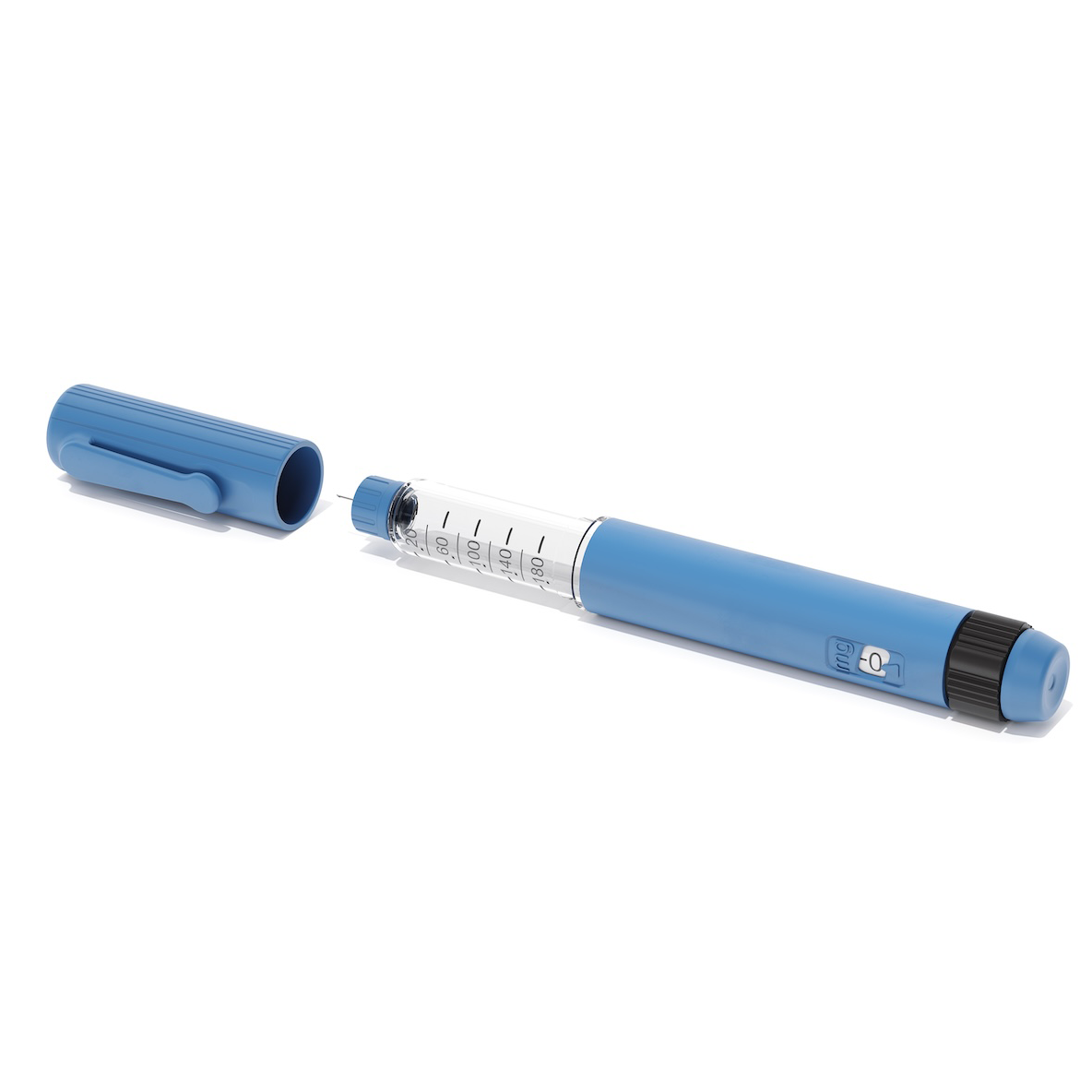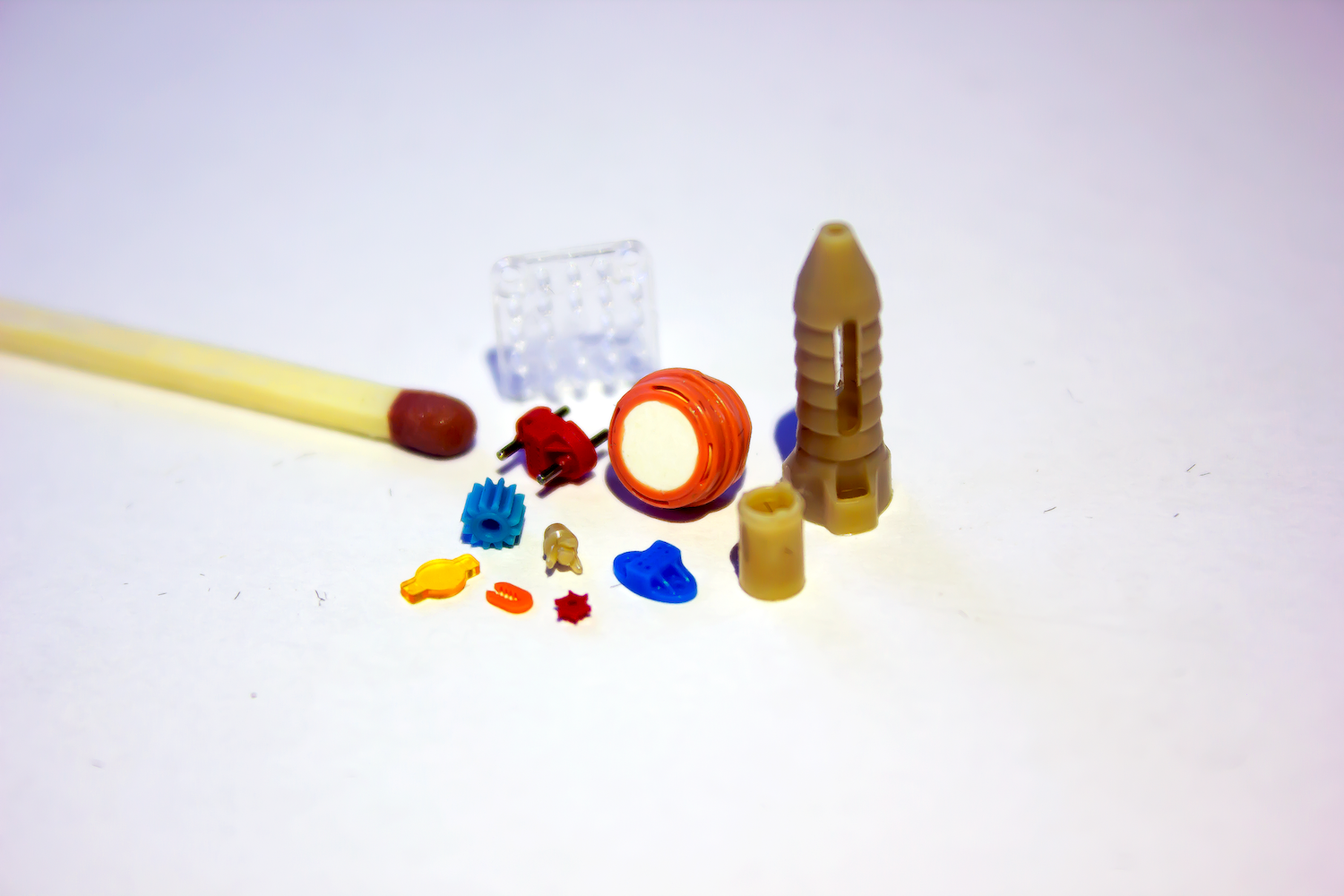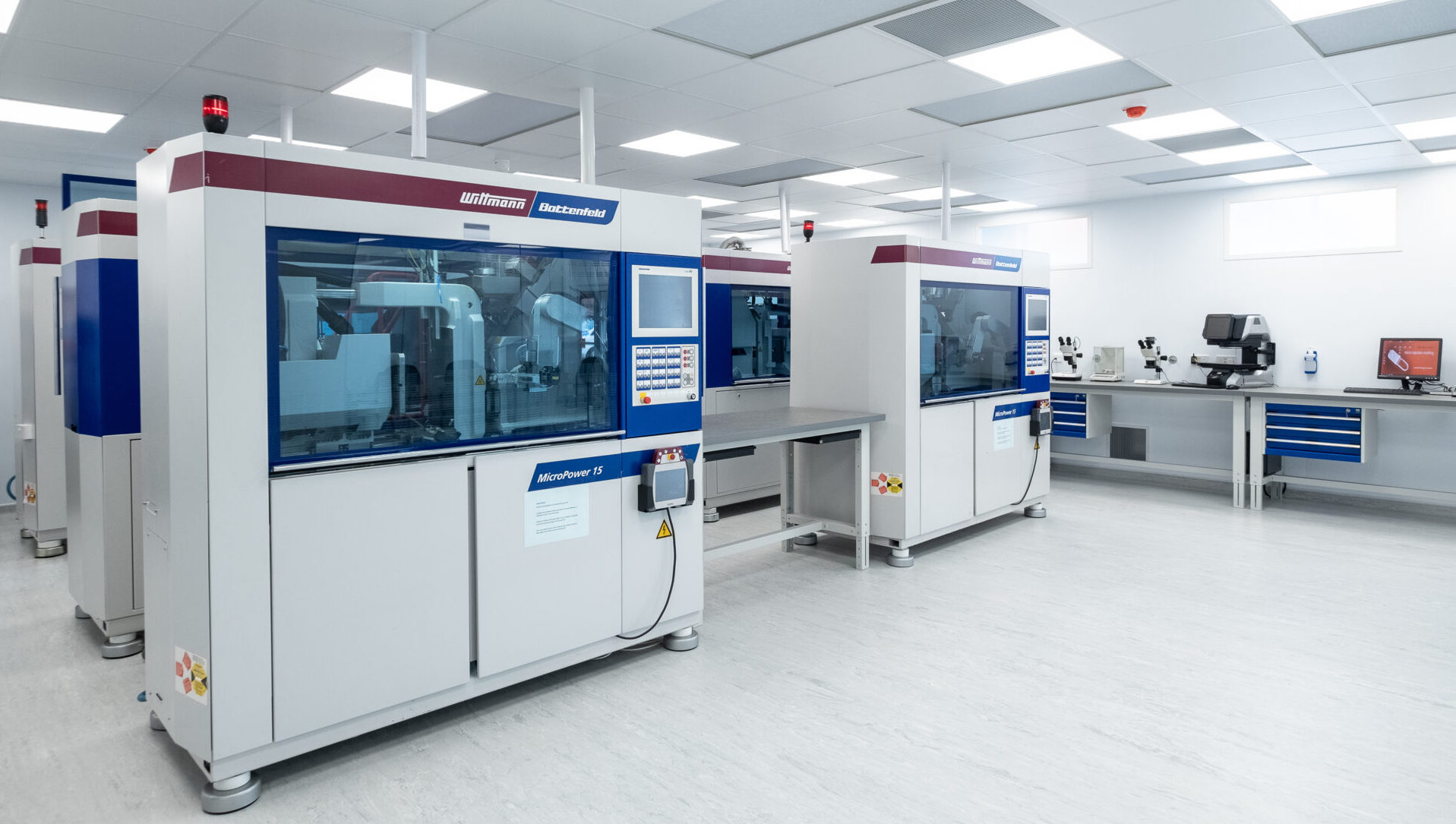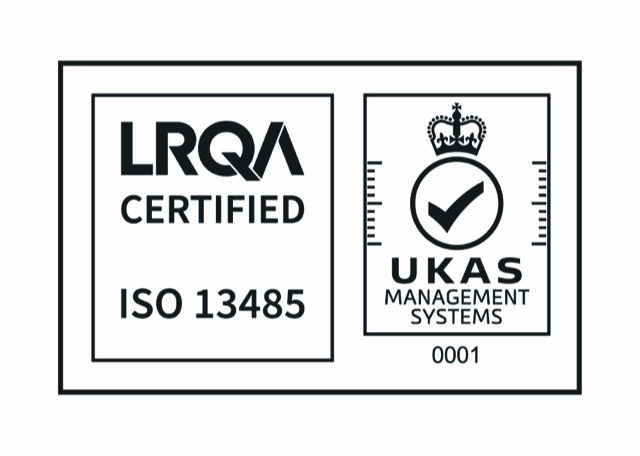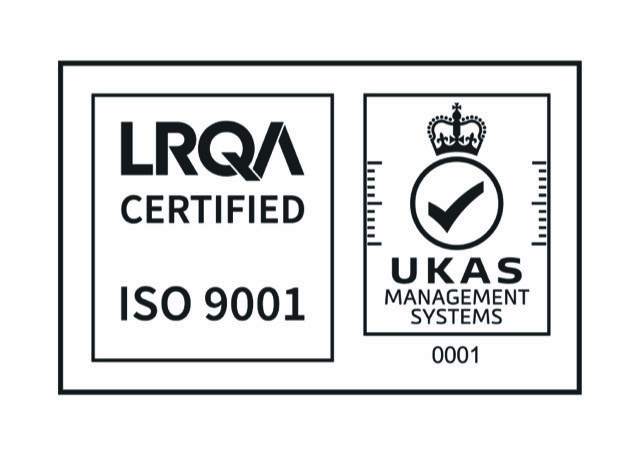MedTech Moulding Trends: Shaping the Future of Medical Device Manufacturing in 2024 – 2025
The medical technology (MedTech) sector is witnessing transformative advancements in injection moulding, driven by innovations in automation, sustainability, and miniaturisation. These developments are enhancing the precision, efficiency, and environmental footprint of medical device manufacturing.
Miniaturisation and Micro Moulding
The demand for minimally invasive procedures is propelling the need for smaller, high-precision components. Micro moulding techniques are gaining prominence, allowing for the production of intricate parts with micron-level tolerances. This advancement is crucial for devices such as endoscopic instruments, micro-optics, and implantable components.
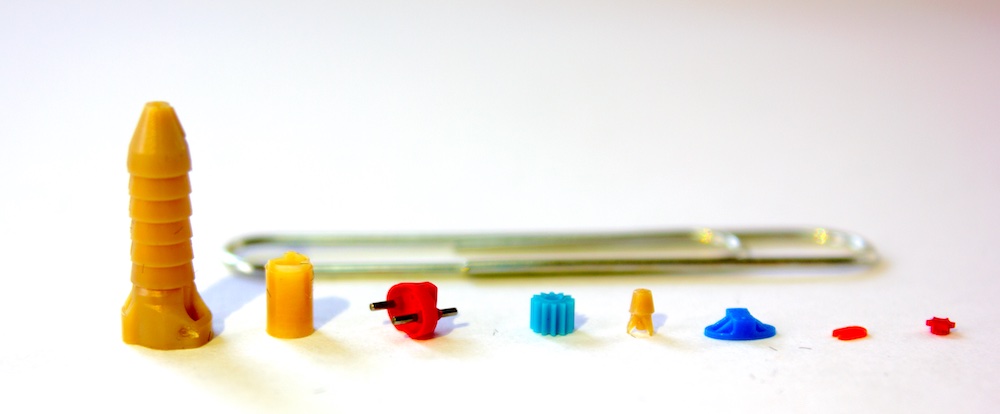
Micro moulding opens doors to endless opportunities in MedTech (Photo: Micro Systems)
Wearable Medical Devices and Overmoulding
The proliferation of wearable health monitoring devices, such as biosensors and ECG monitors, is influencing MedTech moulding trends. Overmoulding techniques are employed to encapsulate electronics within protective plastic layers, ensuring durability and functionality. These devices are integral to the growing telehealth sector, which is expanding rapidly as healthcare delivery becomes more patient-centric.
Advanced Materials for Enhanced Performance
Another key trend is the adoption of advanced high-performance polymers and composites specifically designed for medical applications. Materials such as polyether ether ketone (PEEK), liquid crystal polymers (LCPs), and thermoplastic elastomers (TPEs) are gaining traction due to their exceptional strength, chemical resistance, and biocompatibility. These materials enable the production of devices that can withstand sterilisation, resist wear and tear, and maintain functionality in harsh clinical environments. Additionally, specialty formulations with antimicrobial properties are being developed to reduce infection risks in implantable and reusable devices.
Microfluidics and Lab-on-a-Chip Integration
Microfluidics has emerged as a game-changer in point-of-care diagnostics and drug delivery systems. Injection moulding is being used to manufacture micro-scale channels and features with high accuracy, enabling cost-effective mass production of lab-on-a-chip devices. These compact diagnostic platforms allow for rapid analysis of blood, saliva, or urine with minimal sample volume, transforming patient care through real-time, decentralised testing. Moulding technologies are advancing to produce these intricate geometries consistently and at high throughput.
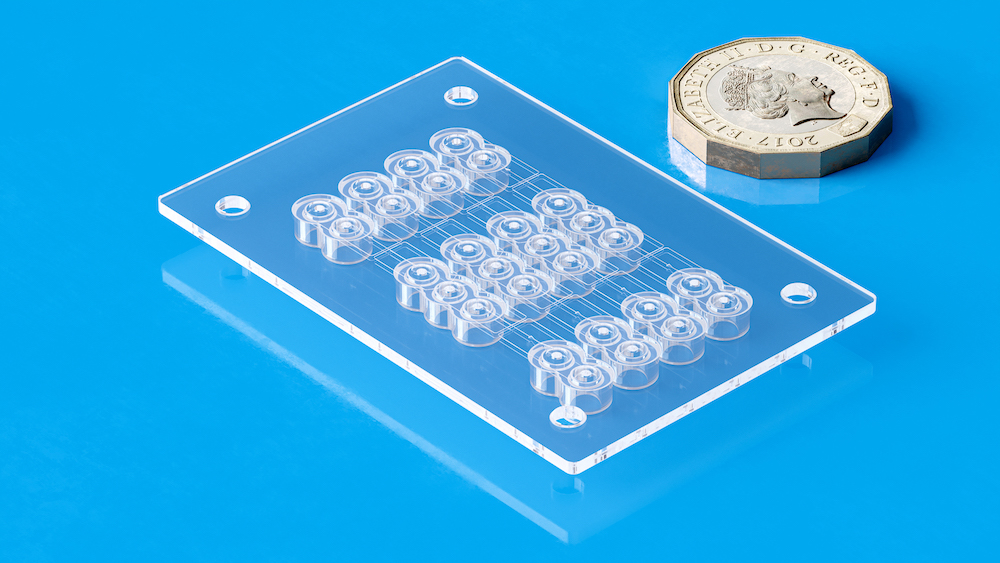
Micro Systems has extensive capabilities in designing and manufacturing microfluidics chips
Automation and Industry 4.0 Integration
A significant trend in MedTech moulding is the integration of Industry 4.0 technologies, including robotics, artificial intelligence (AI), and the Internet of Things (IoT). These technologies enable real-time monitoring, predictive maintenance, and enhanced process optimisation. For instance, companies like Sumitomo (SHI) Demag are developing IoT dashboards that facilitate data analysis and machine performance insights, leading to improved production consistency and reduced downtime.
Sustainability and Biodegradable Materials
Environmental considerations are influencing material choices in MedTech moulding. There is a growing shift towards biodegradable and biocompatible polymers, such as polylactic acid (PLA) and polycaprolactone (PCL), which are used in drug delivery systems and implants. These materials not only reduce environmental impact but also minimise immune reactions and promote faster healing in patients.
Growth of Manufacturing Hubs in Southeast Asia
Southeast Asia, especially Singapore, is becoming a key hub for MedTech moulding due to its strong infrastructure, skilled workforce, and supportive government initiatives. Singapore’s focus on biomedical sciences and Industry 4.0 technologies, along with regional trade agreements, makes it an attractive location for high-precision manufacturing and global exports.
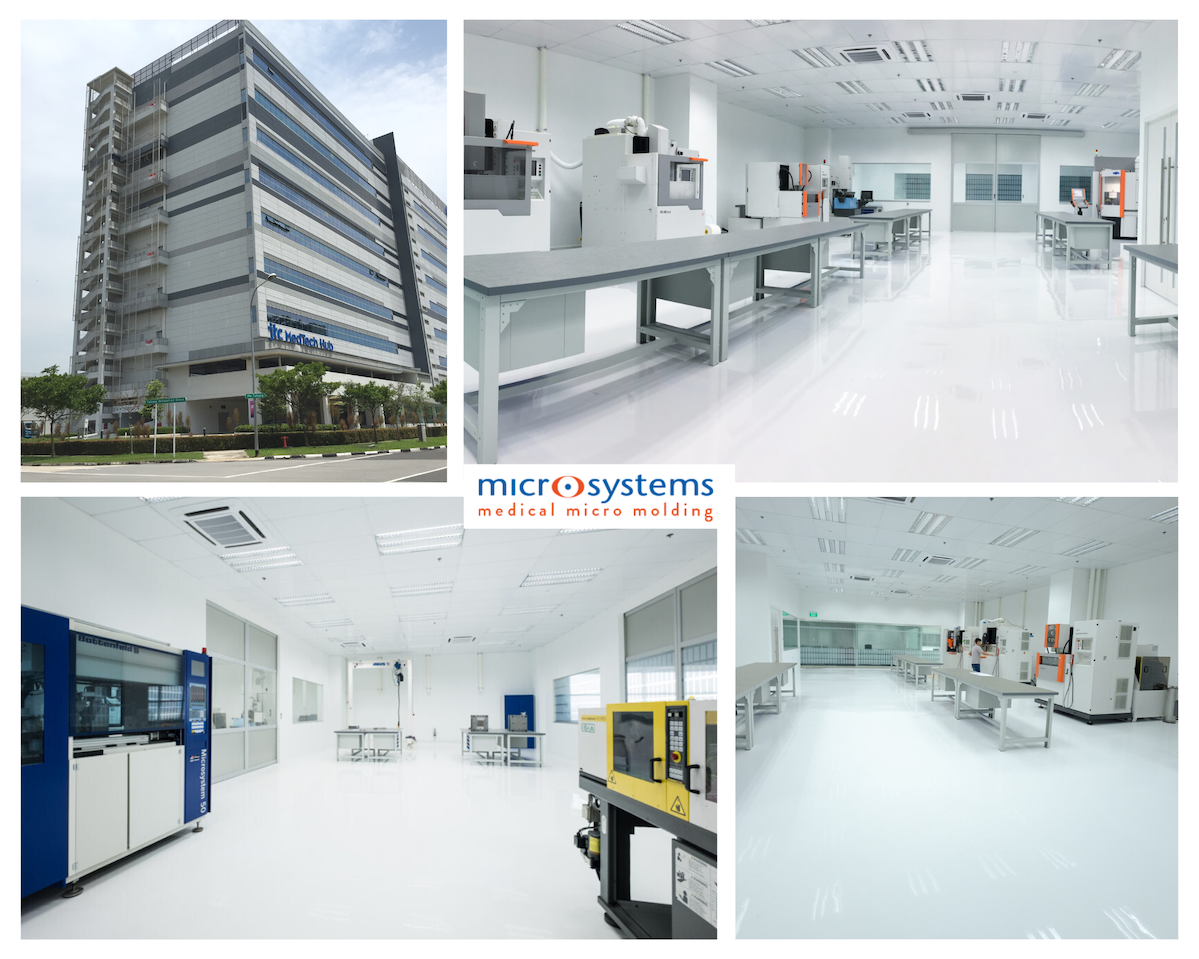
Micro Systems has a well-established facility located in MedTech Hub, Singapore
Conclusion
The MedTech moulding landscape in 2024–2025 is characterised by technological advancements, material innovations, and even smaller dimensions. As the industry continues to evolve, these trends are setting new standards for the design, production, and delivery of medical devices, ultimately enhancing patient care and operational efficiency.
Sources: various sources from the Internet

